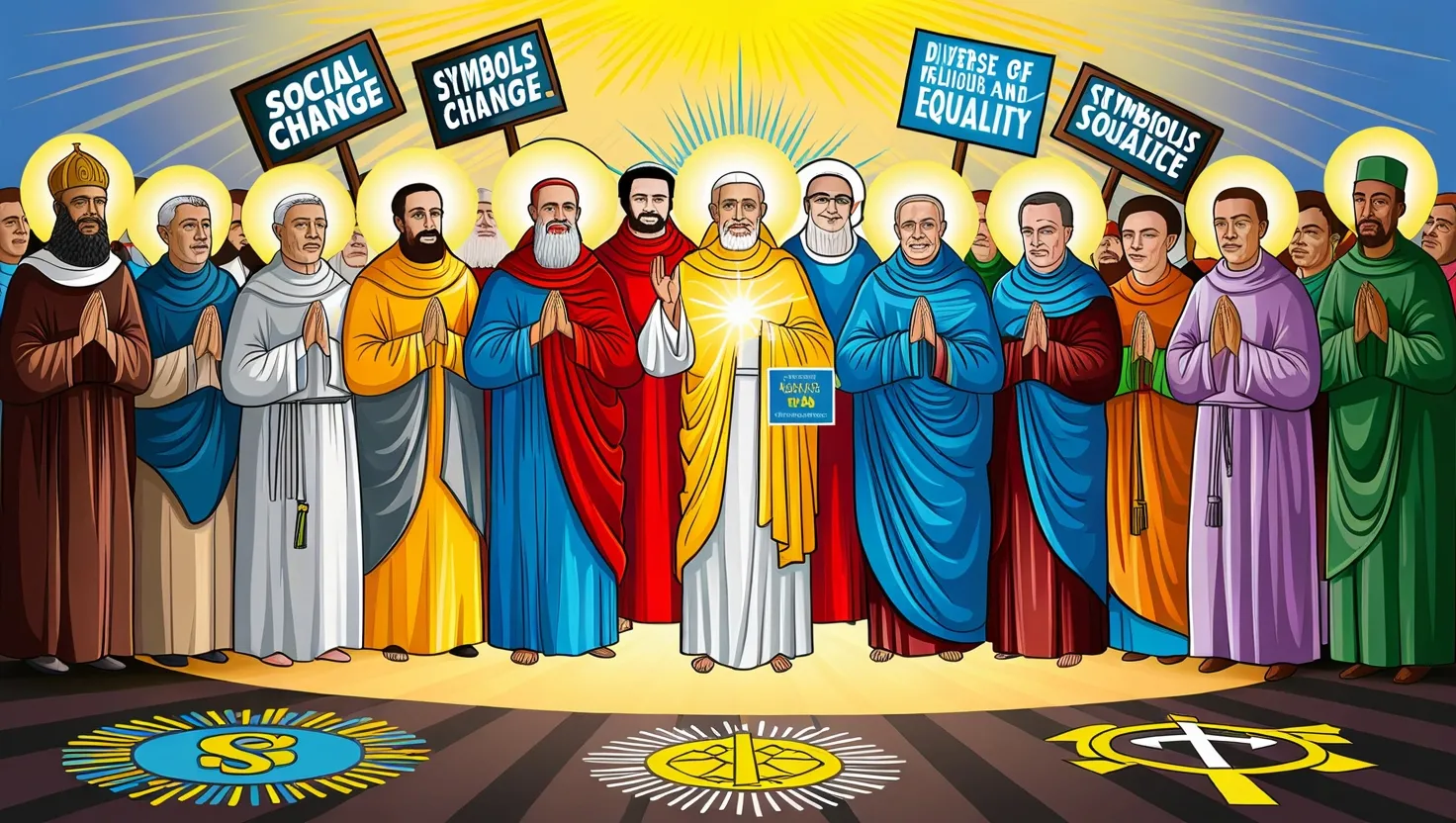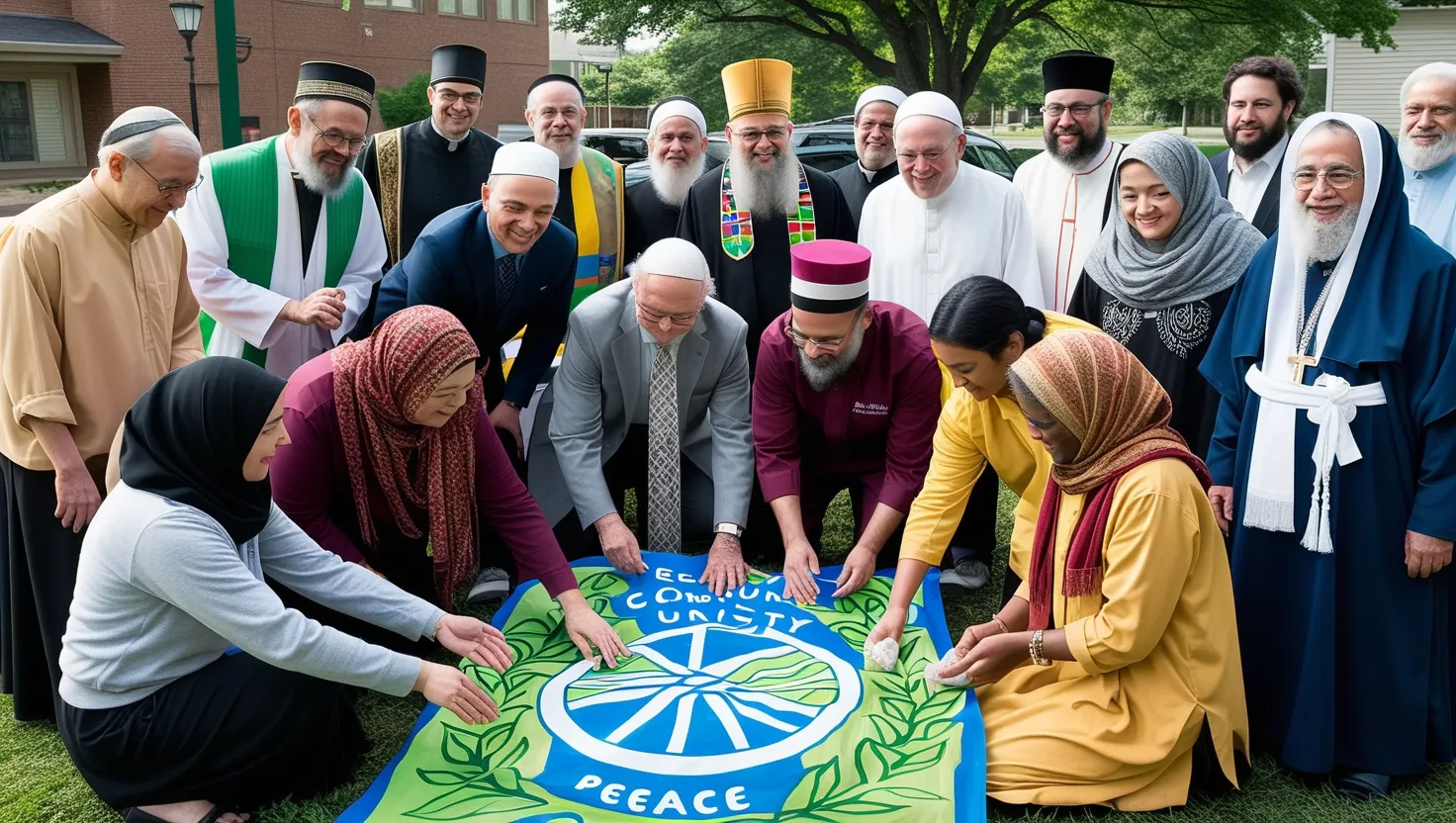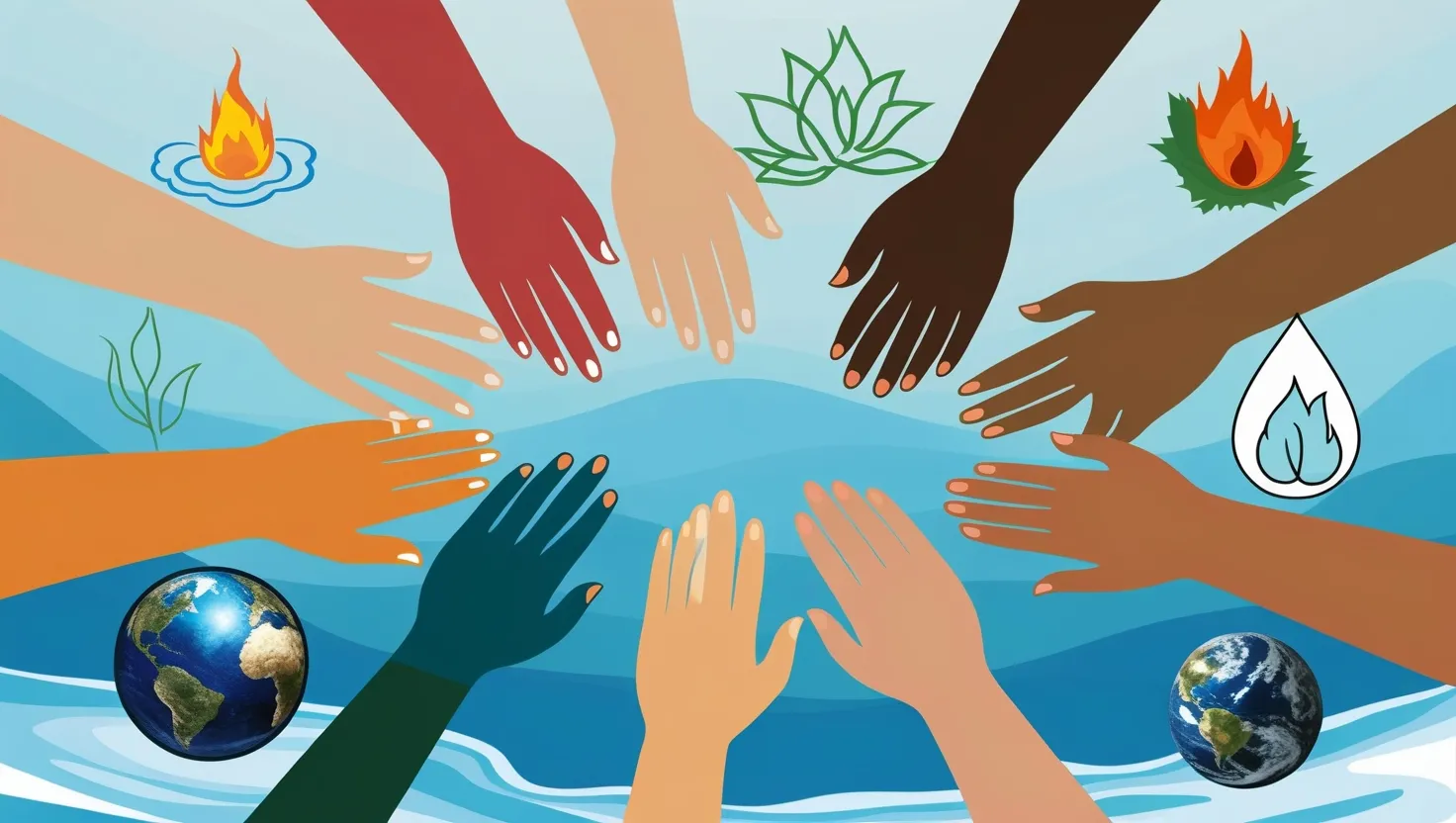Ancient Rituals in Modern Life: 5 Timeless Practices Shaping Our World Today
Discover how ancient religious rituals shape modern society. Explore baptism, Namaste, smudging, Zakat, and meditation's impact on community, wellness, and social responsibility. Learn more!

Religious Revolutionaries: How Faith Leaders Shaped Social Change
Discover how religious figures throughout history challenged social norms and sparked profound change. Explore the impact of Jesus, Buddha, Muhammad, and others on equality and justice. Read now.

Religious Dietary Laws: Shaping Global Food Culture and Markets
Explore the profound impact of religious dietary laws on global food cultures and markets. Discover how spiritual beliefs shape culinary traditions and influence consumer choices. Learn more!

Sacred Texts in Literature: 5 Ancient Scriptures that Shaped World Writing
Explore the profound impact of sacred texts on world literature. Discover how the Bible, Quran, Bhagavad Gita, Tao Te Ching, and Torah have shaped literary works across cultures and generations. Learn more.

7 Essential Principles for Fostering Interfaith Harmony in a Diverse World
Discover the power of interfaith harmony in building a peaceful global community. Learn key principles for fostering understanding, respect, and unity across diverse faiths. Join the journey to a harmonious world.

Sacred Journeys: Exploring the World's Most Influential Religious Pilgrimages
Explore the transformative power of religious pilgrimages across faiths. Discover how these sacred journeys shape spiritual identity and foster unity. Learn about iconic pilgrimages and their impact on believers.

Uncovering the Hidden Meanings of Religious Symbols: From Cross to Crescent
Explore the deep meanings behind religious symbols. Discover how these sacred icons connect faith, history, and culture. Uncover the universal truths that unite diverse beliefs. Learn more about spiritual symbolism today.

Exploring Contemplative Practices: A Journey Through World Religions
Explore diverse contemplative practices from major world religions. Discover how meditation, prayer, and spiritual disciplines foster inner peace and connection. Learn to cultivate mindfulness in daily life.

Santhara: The Jain Art of Dying Spiritually - A Controversial End-of-Life Choice
Explore Santhara: Jain ritual of voluntary fasting to death. Understand its spiritual significance, ethical debates, and impact on end-of-life perspectives.

Nowruz: Ancient Spring Festival Unites Cultures in Joyful Renewal
Discover Nowruz: Ancient Persian New Year celebration. Experience renewal, joy, and cultural traditions as spring begins. Join the festivities and embrace new beginnings!

Ancient Indian Math Secrets: Boost Your Skills with Vedic Mathematics
Discover Vedic Mathematics: Ancient Indian system for quick, efficient calculations. Boost math skills, problem-solving, and cognitive abilities. Learn 16 sutras for mental math mastery.

Jain Ritual of Sallekhana: Ancient Spiritual Fast Challenges Modern Views on Death
Sallekhana, a Jain practice of fasting unto death, is a spiritual journey for achieving liberation. It involves gradual food reduction, intense reflection, and community support. Unlike suicide, it's a voluntary choice for spiritual purification. This ancient tradition raises questions about religious freedom, personal autonomy, and end-of-life choices in modern society.

Nowruz: Ancient Persian New Year Ritual Blends Tradition and Renewal
Nowruz, the Persian New Year, celebrates spring's arrival with ancient Zoroastrian roots. It features the haft-sīn table, house cleaning, and bonfire jumping. Lasting 13 days, it includes family visits and outdoor festivals. Nowruz spans Central and Western Asia, symbolizing cultural identity and renewal. It blends tradition with modern practices, connecting people to nature and their heritage.
